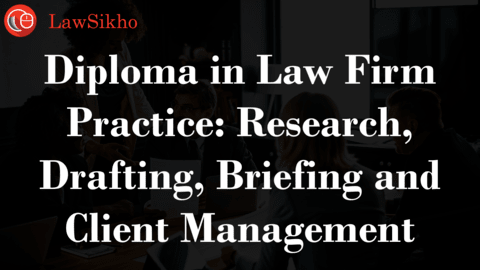This article is written by Vipul Kumar, pursuing Diploma in Law Firm Practice: Research, Drafting, Briefing and Client Management from LawSikho. The article has been edited by Tanmaya Sharma (Associate, LawSikho) and Zigishu Singh (Associate, LawSikho).
Table of Contents
Introduction
Directors are much like the officers of the company, they make the rules and run the company and are also in charge of the daily affairs. So they are a part s of the management of the company. The liability against the directors arises under the tort law and equitable principles when they act as agents or officers of the company has also for being in the position of trustees, or in a fiduciary relationship with shareholders. In tort law, any liability arises against a person for his wrongful acts. But no one is not responsible for acts committed by others. In some cases, a person may be vicariously liable for another’s act. For Example, A shall be liable for the act committed by B when they have certain relationships like Master and Servant or Principal and Agent. Tortious liability can arise if a person commits acts such as negligence, nuisance, trespass, and defamation. The concept of vicarious liability has been evolving with the evolution of the law of torts in the common law country. It has been applied in case of offences committed by the companies or their directors.
The principle of strict liability under the Law of Torts
The concept of strict liability was evolved in the leading case of Ryland v. Fletcher 1868, in this case, the Privy Council held, that a person can legally be held liable for the consequences of activity even in the absence of fault or criminal intent on his or her part, even if the person has no fault or criminal intent. In this case, although the defendant was not negligent or intentionally damaged the plaintiff, he had been held liable under the strict liability.
To determine strict liability three conditions need to be fulfilled which are the following.
- Dangerous Substance: It is the sole responsibility of the defendant to control the dangerous substance that can cause harm on an escape like in the case of the Bhopal Gas leak.
- Escape: To raise the strict liability it is necessary that the thing can escape from the control of the defendant and cause harm to the others.
- Non-natural use of land: A piece of land is used for a special purpose that can potentially pose a danger to others. So it is also needed to determine whether the plaintiff uses the land in a natural way or not.
The scope of strict liability has a broader concept, now for example the directors of Companies are not only liable for actions committed under the Company Act 2013, but they will also be liable for a wrongful act committed under various other laws, such as the Indian Penal Code 1860, like Drugs and Cosmetics Act 1945, Income Tax Act 1961, the GST Act 2017, the Negotiable Instrument Act 1881, Consumer Protection Act 2019 and the various Labour Law Statutes.
In the case of Gurudas Hazra v. P.K.Chowdhury 1999, it was held that section 179 of the Income Tax Act 1961 has made a provision that if the private company is wound up then every person holding the post of director of the company will be jointly or severally liable for the payment of the tax to be payable to the Government. In that case, the recovery of income tax dues against the Company can be recovered from the personal account director’s.
The principle of absolute liability under Law of Torts
It was necessary to have the law in accordance with the changing needs of society. If new challenges arise, new laws need to be developed. The rule is that the new principles have to align with the needs of society and must address problems that arise in a highly industrialized and emerging economy like India. P. N. Bhagwati. J. therefore, stated that a venture to evolve a new rule of liability needs to be undertaken to meet the requirements of our society. He stated that the doctrine of liability under the 19th-century common law that was being followed is not sufficient and that to deal with unusual situations that have arisen and which are also very much likely to arise again in the future, we have to develop our laws with regards to the use of hazardous or inherently dangerous substances that the industries work with.
The Supreme Court of India first time applied this principle in the case of M.C. Mehta vs. Union of India which is popularly known as the Oleum Gas Leak Case. In this case, Justice P. N. Bhagwati observed that companies dealing with hazardous substances must take major action to prevent damages to the community. However, they cannot take a defence that they were doing reasonable care and attention, and no negligence on their part. A company and the Directors were held liable for the Union Carbide Corporation case for the payment of compensation to the victims and their families.
In some cases, the court has held a director liable for prosecution, if there was credible evidence against him for his active participation with criminal intention in case of statutory provision related to vicarious liability. The Supreme Court has laid down that, “When the company is the offender, vicarious liability of the directors cannot be imputed automatically, in the absence of any statutory provision to that effect.” Therefore, we can say that it is a cardinal principle of criminal jurisprudence that vicarious liability can only arise when the statute specifically provides a mechanism for the same.
Special statutory protection against liability
The Director must be liable for a company liquidation realizing the assets of the company and distributing them among the creditors and contributors of the company. If they fail to do so they will be liable for non-compliance.
The Bombay High Court in the case of Gautam Kanoria v. Asstt ROC 1999 had granted relief to the Directors where the AGMs were not be held and annual returns were not be filed by the company due to the takeover of the company by the Government and that circumstance was beyond their control. The circumstances have to be examined to consider whether relief is to be allowed or not. The same was also observed by the court in Om Prakash Khaitan v. Shree Keshariya Investment Ltd 1977 Court granted relief to directors for the consequences of defaults and the breaches when they were not directly involved in the acts or omission or have otherwise not acted honestly or reasonably or had financial involvement in the company.
Why and when tortious liability arises against the Director?
The question arises here that who will be liable for the tort committed by the company? When a tort is committed by the director to an agency with the company then the principle of joint tortfeasors arise. Due to company law doctrines of limited liability and separate entities the director can only be liable as joint tortfeasors. In recent decisions in England, in the case of Standard Chartered Bank v Pakistan International Shipping Corp, the English court held that the liability of directors arises as joint tortfeasors in relation to the tort law when there are sufficient grounds available that prove his involvement in the wrong committed by the company.
In the Maksud Saiyed Vs. The state of Gujarat and Ors 2007, The Supreme court held that if there are provisions in any of the statutes that would hold the Directors vicariously liable when they have violated provisions of any of the statutes. It is most important in the current scenario for the Directors to understand their duties and liabilities then they act honestly and diligently with the right applicant in mind. Being a director, they have to know the standard due diligence and care required to perform their duties. However, in the Companies Act 2013, the liability of the directors is not limited but is unlimited.
Directors should be liable for any act and omission that may cause a tortious act. In the following circumstance, the director may be liable for the tort committed by the company.
- When they act as Agents of the company: In the case of an agency when directors act or omit any action that they are expected to do, in this circumstance they would decidedly be liable for such an act.
- When they become a trustee of the assets and profits of the company: When directors work as trustees of the company they shall exercise their power honestly in the interest of the company. Directors as trustees may be held liable for the misuse of their power, and in the case of their death, even their legal representatives may be held liable for it.
- When they act like employees of the company: When Directors work as employees of the company they shall be liable for acts like the breach of fiduciary duty, Ultra Vires Acts and negligence, and Mala fide Acts.
There is a conflict between company law and tort law in defining the tortious liability of directors acting as agents. A person is only responsible for his tortious act under the torts, except in certain circumstances. If anyone could be held liable in such circumstances, the doctrine of the separate personalities of a company would be violated. It is difficult to prove tortious liability against directors.
A director’s tortious liability can be fixed if, as a trustee, they are in control of company assets. Therefore, it is expected from them to exercise the powers honestly and they should not take it as an advantage and misuse them in their benevolence. And, if they will do this as trustees, then not only they but also their legal representatives are liable after their death.
The Competition Commission of India has made the following observations on the issue of applying Section 48 of the Competition Act, 2002 to prosecute directors and the company simultaneously. Following are conditions precedent for conviction against the company and directors.
- In India, numerous statutes impose vicarious liability on directors and other officers of the company.
- Most provisions of this kind provide that directors are not held vicariously liable for the acts of the company if they can establish that the alleged act was committed without their knowledge and negligence and that they exercised all due diligence to prevent the commission of the offence.
- Vicarious liability attaches to the officer-in-charge, who is responsible for the conduct of the company even if he or she was not directly responsible for the commission of the offence.
- A person vicariously liable for the actions of the company may be prosecuted simultaneously with the company.
- The Competition Commission of India does not have to record a conviction against the company before proceeding against the directors.
In the case of Contex Drouzhba v Wiseman 2007, the English court held that in the Insolvency Law a claim can be raised against a director for false representations and unlawful trade practices so they shall be liable to pay the damages.
Why and when tortious liability does not arise against the Director?
Are the directors personally liable for the torts committed by the company? As the company is also a separate legal entity, directors cannot be held liable for torts committed by the company. Directors being a separate legal entity cannot be held responsible for any tortious act committed by the company so long as they abide by the law for performing their duties. Directors are not responsible for the acts of third parties. Directors are, however, not responsible for contracts they sign while working.
In the case of State of Madras v. CV Parekh 1979, the Supreme Court observed that if a company violates the Essential Commodities Act, 1955, the individual in charge cannot be held responsible if the company is not prosecuted for the same act.
In Sheoratan Agarwal v. State of Madhya Pradesh 1984, the Hon’ble Supreme Court ruled that “the company or the person-in-charge of the company can be held responsible for the actions of the company without prosecution of the company.” In the absence of statutory requirements, such a person is not prohibited from being prosecuted unless the company is also arraigned as an accused alongside them.”. This ruling was contrary to the earlier decision of the Supreme Court in CV Parekh.
Conclusion
Currently, the Indian judiciary does not limit itself to pronouncing judgments based on common law alone. It is working on the principle that enables their laws to be updated and able to fulfil the current requirements of the progressive society. The transition from the doctrine of strict liability to the doctrine of absolute liability is an example of positive results.
Accountability is a critical and effective component of the organization. Therefore, there must be some mechanism for evaluating the performance and responsibility of the directors. However, the extent of liability of a director would depend on the nature and role of their directorship.
In a recent case of Shiv Kumar Jatia v. NCT 2019, The Supreme court reaffirmed its views that were observed in the Sunil Mittal case and held that any individual like a director or a managing director or a chairman of the company could be prosecuted, along with the company, when there is sufficient evidence available against them to prove their active participation with criminal intention.
References
- https://www.legalserviceindia.com/legal/article-4532-liability-strict-liability-absolute-liability-and-vicarious-liability-under-law-of-tort.html
- https://www.mondaq.com/india/directors-and-officers/563958/director39s-liability-revisiting-the-principles-of-vicarious-liability
- https://lexauxilium.com/2020/12/17/tortious-liability-of-companies-jurisprudential-issues/
- https://www.taxmanagementindia.com/visitor/detail_article.asp?ArticleID=7935
- https://corporate.cyrilamarchandblogs.com/2020/11/vicarious-liability-of-non-executive-directors-a-case-for-reform-of-law/
- https://taxguru.in/company-law/directors-officers-liability-india.html#:~:text=Vicarious%20Liability%20of%20the%20Company,or%20omissions%20of%20another%20person
- https://papers.ssrn.com/sol3/papers.cfm?abstract_id=2592878
Students of Lawsikho courses regularly produce writing assignments and work on practical exercises as a part of their coursework and develop themselves in real-life practical skills.
LawSikho has created a telegram group for exchanging legal knowledge, referrals, and various opportunities. You can click on this link and join:
https://t.me/joinchat/L9vr7LmS9pJjYTQ9
Follow us on Instagram and subscribe to our YouTube channel for more amazing legal content.
 Serato DJ Crack 2025Serato DJ PRO Crack
Serato DJ Crack 2025Serato DJ PRO Crack











 Allow notifications
Allow notifications


